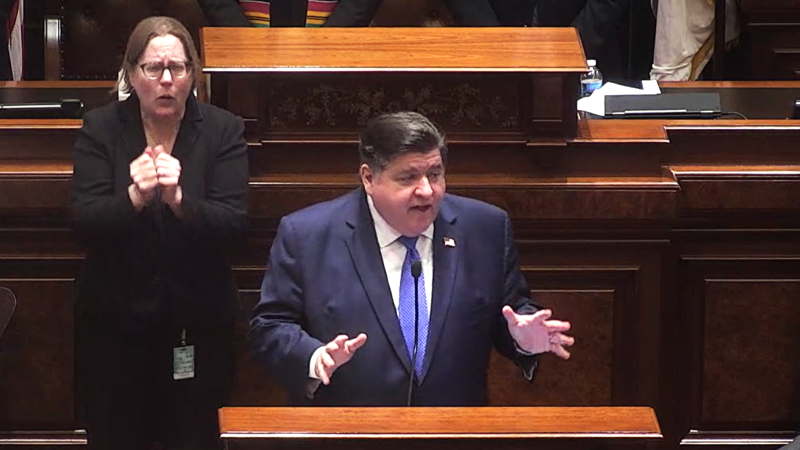(The Center Square) – Concerns over Illinois Gov. J.B. Pritzker’s proposed budget continue to mount, including those worried about proposed reductions in funds to tackle the opioid epidemic.
Aside from concerns raised by employer groups and municipalities, another proposal affects funding for opioid overdose initiatives. Jud DeLoss from the Illinois Association for Behavioral Health said there are proposed cuts to the Substance Use Prevention and Recovery program.
“We were shocked and dismayed to see that Gov. Pritzker has proposed a cut to SUPR of over $45 million,” DeLoss said Friday during a joint House and Senate committee hearing on the workforce limitations for behavioral health. “At a time when we’re seeing opioid deaths and suicides [rise], a cut of that dramatic amount is simply devastating and it is going to cause even further damage to the field.”
Budget documents from the governor’s office show the line item for Addiction Treatment, Prevention, and Related Services was $71.5 million for fiscal year 2024. For fiscal 2025’s proposed plan, that line item is $56.5 million, a difference of $15 million. For Addiction Treatment Services, last year’s budget appropriated $107.1 million. The proposed plan for fiscal 2025 has that line item at $85 million, a difference of $22.1 million.
At an unrelated event Monday, Pritzker said he continues to work with the legislature on the proposed budget.
“There are months now to make sure that we refine it and get it right,” Pritzker said.
At $52.7 billion, Pritzker’s spending plan for the fiscal year that begins July 1 would spend the most of any previous state budget in Illinois. To make up for an anticipated $900 million deficit, the governor proposes various tax changes impacting retailers, corporations, municipalities and sports betters.
One proposed change is eliminating the state’s 1% grocery tax. The Illinois Municipal League opposes that move, saying it will impact local coffers.
“That grocery tax solely goes to municipalities,” IML CEO Brad Cole told The Center Square. “There is no state money in there at all. So when the governor offered to reduce that, he eliminated local funding. So, take away three- or four-hundred million dollars, [cities] are going to have to come up with it somehow.”
Pritzker countered Monday at an unrelated event.
“If they want to in Henry County, in Union County, in local towns and cities across the state, if they want to impose the 1% grocery tax, we will leave it up to them to do it,” Pritzker said. “But the state of Illinois is getting out of the business of charging a grocery tax.”
Despite a few committee hearings this week, the General Assembly is off. Lawmakers return on March 5.







